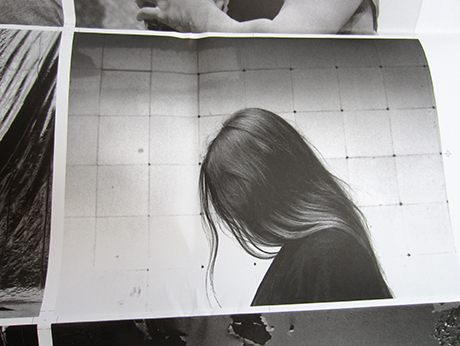
There’s something uneasily evocative about a character defined by their absence. In the novel I’m working on now, I’m trying to summon up one of the central characters via the narratives of others, and it’s not an easy task. When this is done well, it can be breathtaking: consider Michael Kimball’s Dear Everybody, in which the assemblage of the novel turns the (offscreen) character into as vividly rendered a figure as the book’s ostensible protagonist. The books discussed this week make use of absent figures and doubles; identities are swapped and reconsidered. Some are fiction, others not, and another ably blurs the lines between the two; all are likely to linger long after you’ve set them down.
I’d read about Sophie Calle’s The Address Book years ago — unless I’m mistaken, in lightly fictionalized form in a Paul Auster novel. The concept: Calle found an address book and met with the people mentioned inside to interview them about the book’s owner. What arises out of it is a portrait via collage: some know the book’s owner as a friend, others as an acquaintance or a teacher; some don’t recognize his name at all. Throughout, Calle also documents her own anxieties about the project. It’s a fascinating, gripping read — and if you don’t finish it without wondering how the people in your life might describe you when placed in a similar situation, you’re braver than I.
I picked up Marie Chaix’s Silences, a Woman’s Life on the strength of Sarah Gerard’s terrific interview with Chaix for The Paris Review. What I encountered was incredibly powerful: Chaix’s narrator wrestles with the contentious life of her mother, who has fallen into a coma, and attempts to come to some understanding of that life. Of note to those inspired to pick up a copy: checking the copyright dates can be helpful. Chaix’s novel was originally published in France in 1976; realizing this helped dispel some confusion I’d had when reading it. (Specifically: the ages of some of the book’s characters relative to both World Wars.)
Gabriel Blackwell’s Shadow Man isn’t an easy book to describe. Its central conceit: it’s the biography of one Lewis Miles Archer, a detective once partnered with Dashiell Hammett, whose investigations lead him to a web of conspiracies, swapped identities, and unlikely doubles. The tone suggests the work of a hard-boiled historian: pulp metaphors collide with examinations of Californian history, real and imagined. There are Byzantine narratives here, and a meta-narrative in which they’re all nested. The end result is heady and often thrilling, with a layered charge that recalled Peter Straub’s neatly metafictional The Throat.
Doubles also figure prominently in Adolfo Bioy Casares’s Asleep in the Sun. Lucio, the novel’s protagonist, is an affable enough guy — he’s (mostly) happily married, has good relations with his neighbors, and seems to find peace in the fixing of clocks. And then a series of events, becoming more and more surreal, throw his life out of balance. His wife is institutionalized, and he continues seeing doubles of her. One character expounds endlessly about the value of dogs; a doctor promises mysterious therapies while withholding details as to what these therapies entail. It all comes together in a narrative both comic and sinister, where haplessness evolves into something much more worrisome.
I’d first heard about Kathryn Davis’s Hell when I interviewed Jac Jemc a couple of months ago. It’s a dreamlike narrative: to some extent, the central account is a less-than-lucid account of life in a house near Philadelphia in the 1950s; from there, Davis leaps several decades into the future, incorporates a freeform monologue from the house’s original inhabitant (whose restless spirit may be haunting the place), and muses on the inner lives of a dollhouse’s inhabitants. It’s both dense and brisk, a deeply discomfiting work of fiction; Davis’s subject here is, essentially, a clash between forms of order and the violent chaos that they attempt to suppress, and that clash manifests itself in numerous ways, all of them unsettling.
Follow Vol. 1 Brooklyn on Twitter, Facebook, Google +, our Tumblr, and sign up for our mailing list.


2 comments
Great article except for mentioning Kimball’s book. Really?
Really. I was very impressed with that aspect of his novel…